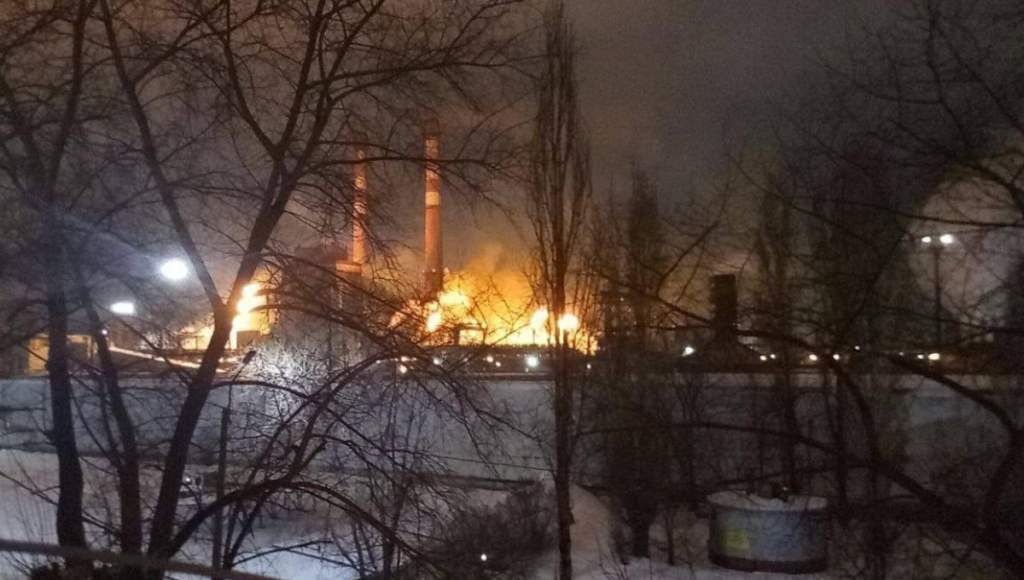In the bygone epoch of two years, when Russia initiated its expansive incursion into Ukraine, I found myself amidst the multitude of seasoned Kremlin observers who erred in their predictions.

The rationale behind Vladimir Putin, Russia’s astute leader, undertaking such a perilous military endeavor seemed unfathomable. This was especially perplexing considering that the mere specter of a Russian invasion had already proven efficacious.
In the preceding year’s June, as Russian forces amassed near Ukraine, President Joe Biden engaged Putin in a summit characterized by superpower dynamics, describing the US and Russia as “two great powers,” thereby elevating the Russian leader, contrary to the approach of prior US administrations that sought to diminish Russia’s sway.
Days before the 2022 invasion, Washington presented a “pragmatic evaluation” of Moscow’s security concerns, indicating a willingness to entertain compromises.
The audacity of pitting Russian forces against one of the region’s most formidable standing armies seemed unusually reckless and thus improbable.
However, there were astute individuals who accurately foresaw the inevitability of the invasion, deciphering the Kremlin’s intentions and confidently prognosticating a swift Russian triumph, courtesy of Moscow’s vastly superior forces.
Fast forward two years, and one might assert that those of us who questioned the Kremlin’s determination were mistaken, yet for justified reasons.
Read also: Pakistan’s PM Shehbaz Sharif will be President Asif Ali Zardari. Impact for India
What Moscow euphemistically terms a “Special Military Operation” has unfolded as a cataclysmic bloodbath of unprecedented proportions, unseen in Europe for generations. Even conservative estimates place the tally of casualties, both dead and injured, in the hundreds of thousands on each side. Modest gains, like the recent capture of Avdiivka, have exacted a colossal toll.
Russia’s once venerated military has revealed its painful inadequacy and vulnerability to modern weaponry wielded by a resolute Ukrainian resistance. Even if the war were to conclude tomorrow, the recuperation of its strength and numbers would likely necessitate years.
The brutal warfare of the past two years has also internally contorted and distorted Russia.
Hundreds of thousands of its denizens have sought refuge abroad to evade conscription. Dissatisfaction with the conduct of the war incited an armed uprising, wherein gun-wielding Wagner mercenaries marched on Moscow, posing an unparalleled challenge to the Kremlin’s authority.
International disdain has rendered Russia the most heavily sanctioned nation globally. President Putin himself faces indictment for war crimes at the Hague. Additionally, Putin’s most outspoken critic, Alexey Navalny, has met his demise. Amid a broader suppression of dissent, the country has descended further into isolation and obscurity.
A panoramic perspective reveals a tragically discernible trajectory.
I found myself in Chechnya in 2000 when President Putin, newly installed, quelled the rebellious Russian region, unleashing an unrelenting Russian military. “We will bomb them in the outhouse,” he declared in a crude yet resonant refrain.
In 2004, on Putin’s birthday, prominent Russian journalist Anna Politikovskaya was assassinated. Her courageous reports from Chechnya struck a chord, leading to the silencing of other critics both domestically and internationally.
By 2008, Putin intervened in neighboring Georgia, carving out pro-Russian territories from the Georgian state. Before the annexation of Crimea from Ukraine in 2014, Russian forces effectively bolstered the Syrian regime in its brutal crackdown on rebellion, despite global condemnation.
However, February 24, 2022, marked a watershed moment.
It wasn’t just a miscalculation in Putin’s ambition to conquer Ukraine; what began as a limited campaign has evolved into an open-ended war.
Rather, Putin’s full-scale invasion of Ukraine marked the definitive abandonment of all cooperation with the West and any pretense that dissent and criticism within the nation would be tolerated.
As of now, there is scant evidence of any deviation from this trajectory.
In fact, two years into his “Special Military Operation,” Putin is consolidating his hold on power, with opponents silenced and upcoming elections in March poised to secure his fifth presidential term.
Privately, many Russians harbor a cautious optimism that a change in trajectory might transpire one day. However, few believe it to be imminent or even proximate.